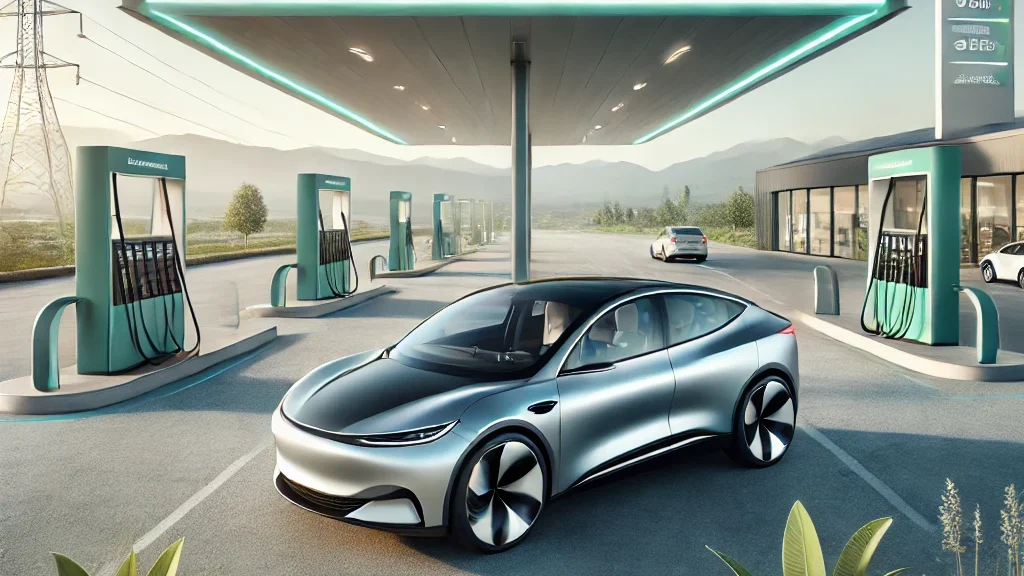Exploring the World: Travel Insights
Your go-to source for travel tips, destination guides, and cultural insights.
Fuel Economy Fables: Myths and Reality
Uncover the truth behind fuel economy myths! Discover what really affects your gas mileage and save money at the pump.
Debunking the Top 5 Fuel Economy Myths: What Every Driver Should Know
Fuel economy is often surrounded by a fog of misconceptions that can lead drivers to make poor choices. One common myth is that using premium fuel will always improve a vehicle's fuel efficiency. In reality, most cars are designed to run efficiently on regular unleaded gasoline. According to Consumer Reports, unless your vehicle specifically requires premium fuel, opting for it can be an unnecessary expense without any notable gains in fuel economy.
Another widespread belief is that driving at high speeds saves time and therefore, fuel. However, research indicates that fuel efficiency takes a significant hit at speeds above 50 miles per hour. The U.S. Department of Energy highlights that every 5 mph over 50 is like paying an additional $0.25 per gallon for gas. By debunking these myths, drivers can make more informed decisions that enhance their overall fuel economy.

Do Premium Fuels Really Improve Fuel Economy? Separating Fact from Fiction
Many drivers wonder if using premium fuels can genuinely enhance their vehicle's fuel economy. While premium gasoline is often marketed as a superior product, the truth is that its benefits are generally tied to specific engine requirements. For most vehicles that operate optimally on regular fuel, switching to premium may not yield any significant increase in fuel economy. According to the American Petroleum Institute, the recommended fuel type for your car plays a crucial role in its performance. So, unless your vehicle specifically requires premium gasoline due to high compression or turbocharged engines, you might be wasting your money.
However, there are exceptions where premium fuels can improve efficiency, particularly in high-performance vehicles where manufacturers specify its use. These vehicles often have engines optimized to take advantage of the higher octane, potentially leading to better ignition timing and less knocking. As noted by the Car and Driver, if your vehicle can benefit from premium fuel, you might notice improved fuel economy under certain driving conditions. Ultimately, understanding your specific vehicle's needs is crucial; for most drivers, using regular fuel is perfectly fine, and the premium option may simply be a marketing gimmick rather than a necessity.
The Truth About Hybrid Vehicles: Are They Worth the Hype for Fuel Savings?
Hybrid vehicles have surged in popularity over the past decade, capturing the attention of eco-conscious consumers and budget-savvy drivers alike. The key appeal lies in their fuel savings, achieved through the combination of a traditional internal combustion engine and an electric motor. According to the U.S. Department of Energy, hybrid cars can improve fuel economy by approximately 20 to 35%, depending on the model. This boost in efficiency not only translates to significant savings at the pump but also contributes to a reduction in harmful emissions, making these vehicles an attractive option for those looking to lessen their carbon footprint.
However, the question remains: are they truly worth the hype? While the upfront cost of a hybrid vehicle can be higher than that of a conventional car, the long-term savings on fuel may offset this initial investment. The Edmunds team emphasizes the importance of understanding your specific driving habits and how often you may benefit from the hybrid technology. In urban settings with frequent stop-and-go traffic, hybrids generally perform better and provide greater fuel savings compared to highway driving. Therefore, potential buyers should carefully assess their driving patterns to truly determine if the benefits offered by hybrid vehicles justify the initial costs.